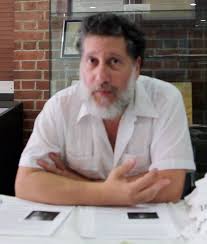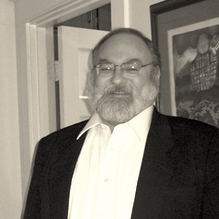[Ed. Note: Again this week, I am presenting a previously published blog entry. We are working on improving the presentation of the blog articles for readability, style, and appearance. I would appreciate hearing from you about this blog, particularly if you are having any difficulties, problems, or issues accessing or reading it. If you have any comments – or a blog submission, please contact me at j.blair@jewish-funerals.org. — JB]

A Kosher Casket?
Kosher means fit or proper for ritual use, but unlike the biblical delineation of which foods are kosher, there are no biblical rules to give guidance regarding manufacture of kosher caskets. The Talmud contains dozens of occurrences of Hebrew words that are translated to English as “casket”, “coffin”, “bier”, “chest” and more. But nowhere in Jewish writings is there a discussion of what makes a casket kosher.
Tachrichim (shroud or burial garment) manufacturers have suggested that there are “kosher” tachrichim dependent on the observance level of the workers and certifying that the product was not made on Shabbat. The rationale for this seems slim for tachrichim, and even slimmer for caskets. Basing Kashrut on worker’s level of observance is a novel approach not practiced in kosher food manufacturing. More interesting and fruitful pursuits to define a kosher casket might include looking at working conditions, wages and health benefits of the employees, as well as the environmental impact of the manufacturing ingredients and process.
Simple & Inexpensive
The Talmud directs that all aspects of funeral and burial should be kept simple and inexpensive, and by extension fit and proper. BT (Babylonian Talmud) Moed Katan 27a- 27b contains an extended discussion of funeral practices and a story about Rabban Gamliel. This discussion can open a window to the meaning of ‘Kosher’ in relation to a casket.
Formerly, they were wont to bring out the rich [for burial] on a dargesh [a tall state bed, ornamented and covered with rich coverlets] and the poor on a plain bier, and the poor felt shamed: they instituted therefore that all should be brought out on a plain bier, out of deference for the poor.
Without knowing the difference between a dargesh and a bier in Rabban Gamliel’s time, the implication is clear – the dargesh is fancy and affordable to the rich; the bier is simple and used by those who are poor. The dargesh made it easy to carry the body and to show off wealth. The bier (Hebrew – mitah) is a simple stand or platform that holds and/or carries the body.
Jewish Law (Halachah)
The Shulchan Aruch allows for burial with or without a casket, but gives no indication of how to determine if a casket is Kosher. Rabbi Mosha Epstein in his Taharah Manual of Practices quotes Rav Moshe Feinstein. Rav Feinstein could find no source for an all wood casket. He cites Rambam, yet Rambam in his Book of Judges – Laws of Mourning – 4:4 says: “It is permissible to bury the dead in a wooden casket.”
In the 1960’s, the Orthodox Union and the Rabbinical Council of America negotiated funeral standards with the Jewish Funeral Directors of America. The Orthodox Rabbis were successful in incorporating taharah, tachrichim, Shmirah, and ground burial into the standards. They failed in their attempt to include simple plain caskets.
Plain Pine Box
It was only 60 years ago that an expensive all wood casket became acceptable in the Jewish community. Our Moed Katan example goes back over 1,700 years. We should pick up Rabban Gamliel’s cause and champion a simple casket (or none at all) as a return to less expensive funerals and burials.
David Zinner is the Executive Director of Kavod V’Nichum (honor and comfort), and of the Gamliel Institute, and serves as instructor for the non-denominational Gamliel Institute, a nonprofit center for Chevrah Kadisha organizing, education, and training. In his role as executive director Zinner co-teaches courses on Chevrah Kadisha history, organizing, taharah and shmira (sitting with the deceased until burial), and building capacities in Jewish communities that enable all participants to meaningfully navigate these final life cycle events.

____________
GAMLIEL INSTITUTE COURSES
LOOKING FORWARD: UPCOMING COURSE
Gamliel Institute will be offering course 4, Nechama [Comfort], online, evenings, in the Spring semester starting March 28, 2017.
CLASSES
The course will meet on Tuesdays (and three Thursdays in those weeks with Jewish holidays during this course). The date of classes will be from March 28 to June 13 2017. Please note: due to holidays, classes will meet on Thursdays on April 13th, April 20th, and June 1st. There will be an orientation session on Monday, March 27th, 2017.
REGISTRATION
You can register for any Gamliel Institute courses online at jewish-funerals.org/gamreg. A full description of all of the courses is found there.
For more information, visit the Gamliel Institute website, or look at information on the Gamliel Institute at the Kavod v’Nichum website or on the Gamliel.Institute website. Please contact us for information or assistance. info@jewish-funerals.org or j.blair@jewish-funerals.org, or call 410-733-3700, or 925-272-8563.
______________
TASTE OF GAMLIEL
In 2017, Kavod v’Nichum and the Gamliel Institute are again sponsoring a six part “Taste of Gamliel” webinar. This year’s topic is From Here to Eternity: Jewish Views on Sickness and Dying.
Each 90 minute session is presented by a different scholar. Taste of Gamliel gives participants a “Taste” of the Gamliel Institute’s web-based series of courses.
Taste of Gamliel Webinars for this year are scheduled on January 22, February 19, March 19, April 23, May 21, and June 25. The instructors this year are: Dr. Dan Fendel, Rabbi Dayle Friedman, Rabbi Sara Paasche-Orlow, Rabbi Richard Address, Rabbi Elliot Dorff, and Dr. Laurie Zoloth.
Learn from the comfort of your own home or office.
The Taste sessions are done in a webinar format, where the teacher and students can see each other’s live video feeds. The sessions are moderated, participants raise their virtual hands to ask questions, and the moderator calls on and unmutes participants when appropriate. We’ve been teaching using this model for seven years (more than 250 session). We use Zoom, a particularly friendly and easy to use platform.
This series of Webinar sessions is free, with a suggested minimum donation of $36 for all six sessions. Online sessions begin at 5 PM PST; 8 PM EST.
Those registered will be sent the information on how to connect to the sessions, and will also receive information on how to access the recordings of all six sessions.
The link to register is: http://jewish-funerals.givezooks.com/events/taste-of-gamliel-2017.
On registration, you will receive an automated acknowledgement. Information and technology assistance is available after you register. Those who are registered are sent an email ahead of each webinar with log on instructions and information for the upcoming session.
You can view a recording of the sessions, uploaded after each session, so even if you need to miss one (or more), you can still hear the presentation.
More info – Call us at 410-733-3700
Attend as many of these presentations as are of interest to you. Each session is about 90 minutes in duration. As always, we plan to hold time for questions and discussions at the end of each program.
Again, the entire series is free, but we ask that you make a donation to help us defray the costs of providing this series. The suggested $36 amount works out to $6 for each session – truly a bargain for the valuable information and extraordinary teachers that present it.
Click the link to register and for more information. We’ll send you the directions to join the webinar no less than 12 hours before the session.
Suggestions for future topics are welcome.
The Gamliel Institute is the leadership training arm of Kavod v’Nichum. The Gamliel Institute offers five on-line core courses, each 12 weeks in length, that deal with the various aspects of Jewish ritual and actions around sickness, death, funerals, burial and mourning. Participants come from all over the United States, Canada, Central and South America, with Israelis and British students joining us on occasion.
________________________
KAVOD v’NICHUM CONFERENCE
Looking ahead, hold June 18-20, 2017 for the 15th annual Kavod v’Nchum Chevrah Kadisha and Jewish Cemetery Conference. Register, and make your hotel reservations and travel plans now!
15th Annual North American Chevrah Kadisha and Jewish Cemetery Conference
At Congregation Rodef Sholom in San Rafael, California June 18-20, 2017
Registration is now open. Group discounts are available.
The conference program will include plenaries and workshops focused on Taharah, Shmirah, Chevrah Kadisha organizing, community education, gender issues, cemeteries, text study and more.
The conference is on Sunday from noon until 10pm, on Monday from 7am to 10pm, and on Tuesday from 7am to 1pm. In addition to Sunday brunch, we provide six Kosher meals as part of your full conference registration. There are many direct flights to San Francisco and Oakland, with numerous options for ground transportation to the conference site.
We have negotiated a great hotel rate with Embassy Suites by Hilton. Please don’t wait to make your reservations. We also have home hospitality options. Contact us for information or to request home hospitality. 410-733-3700, info@jewish-funerals.org
____________________
DONATIONS:
Donations are always needed and most welcome. Donations support the work of Kavod v’Nichum and the Gamliel Institute, helping us to bring you the conference, offer community trainings, provide scholarships to students, refurbish and update course materials, expand our teaching, support programs such as Taste of Gamliel, provide and add to online resources, encourage and support communities in establishing, training, and improving their Chevrah Kadisha, and assist with many other programs and activities.
You can donate online at http://jewish-funerals.org/gamliel-institute-financial-support or by snail mail to: either Kavod v’Nichum, or to The Gamliel Institute, c/o David Zinner, Executive Director, Kavod v’Nichum, 8112 Sea Water Path, Columbia, MD 21045. Kavod v’Nichum [and the Gamliel Institute] is a recognized and registered 501(c)(3) organizations, and donations may be tax-deductible to the full extent provided by law. Call 410-733-3700 if you have any questions or want to know more about supporting Kavod v’Nichum or the Gamliel Institute.
You can also become a member (Individual or Group) of Kavod v’Nichum to help support our work. Click here (http://www.jewish-funerals.org/money/).
___________
MORE INFORMATION
If you would like to receive the periodic Kavod v’Nichum Newsletter by email, or be added to the Kavod v’Nichum Chevrah Kadisha & Jewish Cemetery email discussion list, please be in touch and let us know at info@jewish-funerals.org.
You can also be sent an email link to the Expired And Inspired blog each week by sending a message requesting to be added to the distribution list to j.blair@jewish-funerals.org.
Be sure to check out the Kavod V’Nichum website at www.jewish-funerals.org, and for information on the Gamliel Institute and student work in this field also visit the Gamliel.Institute website.
RECEIVE NOTICES WHEN THIS BLOG IS UPDATED!
Sign up on our Facebook Group page: just search for and LIKE Chevra Kadisha sponsored by Kavod vNichum, or follow our Twitter feed @chevra_kadisha.
To find a list of other blogs and resources we think you, our reader, may find of interest, click on “About” on the right side of the page.There is a link at the end of that section to read more about us.
Past blog entries can be searched online at the L.A. Jewish Journal. Point your browser to http://www.jewishjournal.com/expiredandinspired/, and scroll down. Along the left of the page you will see a list of ‘Recent Posts” with a “More Posts” link. You can also see the list by month of Expired and Inspired Archives below that, going back to 2014 when the blog started.
____________________
SUBMISSIONS ALWAYS WELCOME
If you have an idea for an entry you would like to submit to this blog, please be in touch. Email J.blair@jewish-funerals.org. We are always interested in original materials that would be of interest to our readers, relating to the broad topics surrounding the continuum of Jewish preparation, planning, rituals, rites, customs, practices, activities, and celebrations approaching the end of life, at the time of death, during the funeral, in the grief and mourning process, and in comforting those dying and those mourning, as well as the actions and work of those who address those needs, including those serving in Bikkur Cholim, Caring Committees, the Chevrah Kadisha, Shomrim, funeral providers, funeral homes and mortuaries, and operators and maintainers of cemeteries.
_____________________























 More news and opinions than at a Shabbat dinner, right in your inbox.
More news and opinions than at a Shabbat dinner, right in your inbox.